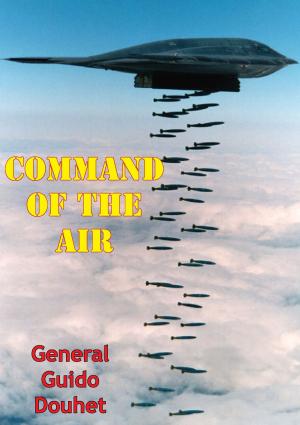Clausewitz And Seapower: Lessons Of The Falkland Islands War
Nonfiction, History, Middle East, Persian Gulf War, Military| Author: | LCDR Edward B. Zellem USN | ISBN: | 9781782899952 |
| Publisher: | Tannenberg Publishing | Publication: | November 6, 2015 |
| Imprint: | Tannenberg Publishing | Language: | English |
| Author: | LCDR Edward B. Zellem USN |
| ISBN: | 9781782899952 |
| Publisher: | Tannenberg Publishing |
| Publication: | November 6, 2015 |
| Imprint: | Tannenberg Publishing |
| Language: | English |
This paper explores the hypothesis that although Clausewitz has been criticized for not specifically addressing naval warfare in his seminal work On War, Clausewitzian principles are in fact not only applicable, but highly relevant to the modern conduct of war at sea. The 1982 Falkland Islands conflict between Great Britain and Argentina will be used as the framework to examine this hypothesis. As the largest and most significant series of naval engagements since World War II, the Falklands War provides a rich database of both traditional and non-traditional lessons learned about the conduct of war at sea. This paper begins with a brief discussion of critiques of Clausewitz and his apparent lack of focus on the naval element of warfare. It will be followed by a historical review of significant events leading up to, and during the Falkland Islands War. Key events in the war will then be reviewed and examined within a framework of Clausewitzian principles. The motives, key assumptions, military strategy, and tactics of Great Britain and Argentina will be discussed within the context of the Clausewitzian dictum that war is the continuation of politics by other means. Selected specific events in the campaign will then be addressed in terms of Clausewitzian principles of war to determine their relevance or irrelevance to modern naval strategy and campaigning.
This paper explores the hypothesis that although Clausewitz has been criticized for not specifically addressing naval warfare in his seminal work On War, Clausewitzian principles are in fact not only applicable, but highly relevant to the modern conduct of war at sea. The 1982 Falkland Islands conflict between Great Britain and Argentina will be used as the framework to examine this hypothesis. As the largest and most significant series of naval engagements since World War II, the Falklands War provides a rich database of both traditional and non-traditional lessons learned about the conduct of war at sea. This paper begins with a brief discussion of critiques of Clausewitz and his apparent lack of focus on the naval element of warfare. It will be followed by a historical review of significant events leading up to, and during the Falkland Islands War. Key events in the war will then be reviewed and examined within a framework of Clausewitzian principles. The motives, key assumptions, military strategy, and tactics of Great Britain and Argentina will be discussed within the context of the Clausewitzian dictum that war is the continuation of politics by other means. Selected specific events in the campaign will then be addressed in terms of Clausewitzian principles of war to determine their relevance or irrelevance to modern naval strategy and campaigning.




![Cover of the book U.S. Marines In Battle: An-Najaf, August 2004. [Illustrated Edition] by LCDR Edward B. Zellem USN](https://www.kuoky.com/images/2014/august/300x300/9781782893929-K8hX_300x.jpg)










